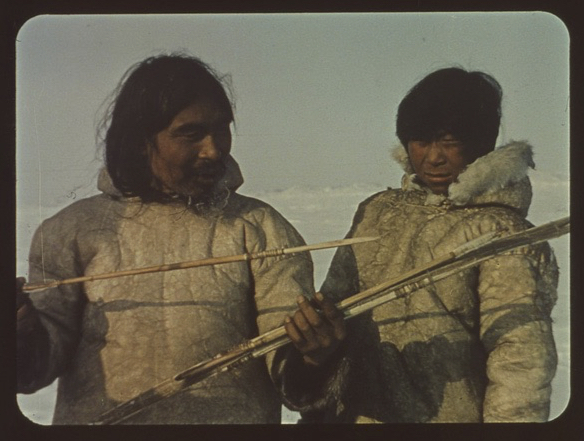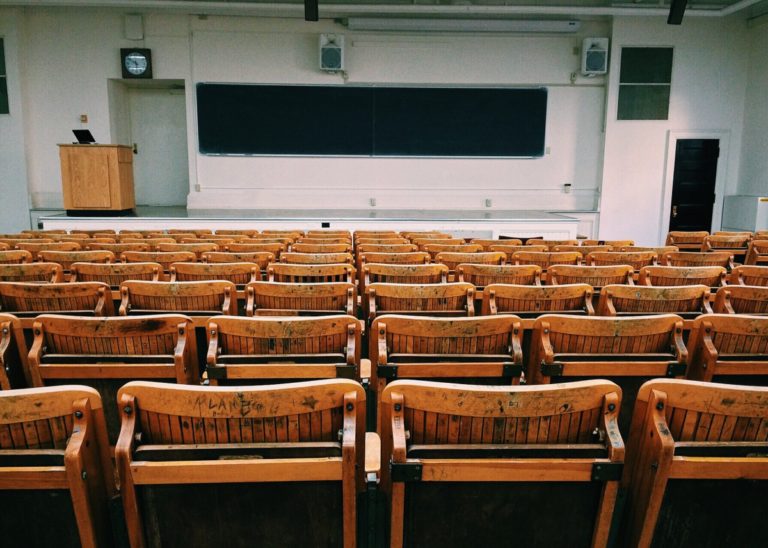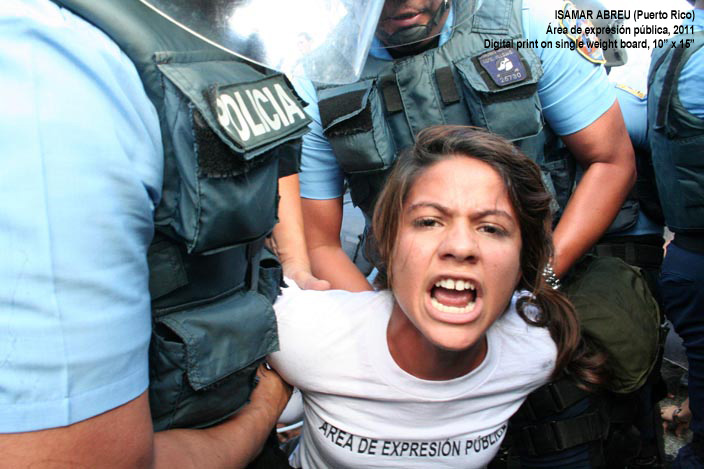Asao Inoue’s metaphor “cooking in someone else’s kitchen” provides a conceptual framework describing how white educators may navigate teaching topics outside of the subject positions they occupy. I apply an intentionally literal interpretation of Inoue’s metaphor, to position food culture as an important component of social justice pedagogy.
As post-secondary institutions prioritize diversity, equity, and inclusion initiatives, antiracist pedagogies have become a source of uneasiness for many white educators. Often, these educators may give excuses stemming from embodied positionality and fear of saying something wrong, which may become reasons to avoid difficult classroom conversations. As a result, universities lose opportunities to educate students about race-related issues, along with the potential for increased civic engagement. This paper addresses white teachers’ apprehension surrounding antiracist pedagogy and presents a food-themed writing course focused on how food has been weaponized historically, contributing to racial, class, and gender injustice—and how similar systems of oppression are still in effect currently. The course centers food as a commonplace to explore race, racism, and cultural difference—while helping teachers gain confidence in joining antiracist efforts.
Keyword: pedagogy
The Queer Aut of Failure: Cripistemic Openings for Postgraduate Life
I, a Mad, autistic, multiply-disabled person, began my PhD in Cultural Studies in September of 2020. I started to make my home in graduate school during the COVID-19 pandemic, fully online, and I’ve excelled, calling into question normative assumptions of in-person socialization, education, and collaboration as superior to their virtual counterparts. In this article, I reflect on the cripistemic pedagogies of failure that facilitated a neuroqueered and transMaddened transition to Zoom-based graduate life. I will also consider email, text messages, and video calls as equalizing mediums in which both formal and fugitive spaces can open for queercrip collaboration across borders, timezones, and access needs. Lastly, I will tell the stories of technological “failures” that I have experienced—miscommunications, failing internet, time delays—as generative possibilities rather than indictments of a non-normative learning. Necessarily imperfect and rife with humorous, intriguing, and profoundly human failures, as well as surprising and generative openings, pandemic education has ushered in new queercrip, transMad, ways of knowing and teaching that have uniquely benefitted me. Far from a circumscribed or lacking educational landscape, I argue, post-COVID academia is filled with pedagogical and epistemological openings, holes through which new disabled and Mad scholars, myself included, can make ourselves a beautifully imperfect home space. I invite you inside.
Arctic Pedagogy: Indigenous People and the MACOS Culture War
This paper is about the place of Indigenous people in an early instance of a culture war in the United States: the conflict in the 1970s over an innovative middle-grades social studies curriculum called “Man: A Course of Study” (MACOS). Funded by the National Science Foundation, MACOS sought to revamp social studies education by addressing big questions about humans as a species and as social animals. It quickly came under fire from conservatives and helped to solidify the concept of “secular humanism” as a social threat. A broad conservative organizing effort, whose effects can still be felt today, eventually ended not only MACOS, but the very viability of school curriculum reform projects on the national level. Though this story is familiar to historians of American education, this paper argues for its centrality to the development of contemporary conservative politics and the early history of the culture wars. It also takes up the largely unaddressed issue of how Indigenous people figured in the MACOS curriculum and in the ensuing controversy. Focusing on the ethnographic film series featuring Netsilik Inuit that was at the heart of the MACOS curriculum, this paper addresses the largely unacknowledged legacy of Indigenous pedagogy, to argue that the culture war that led to the demise of the MACOS project also represented a lost opportunity for Indigenous knowledge and teaching to be incorporated into the formal schooling of American children.
Coronavirus Pedagogy in the Zoomscape: Pinhole Intimacy Culture Meets Conscientization
The COVID-19 pandemic emptied universities, colleges, and schools across the United States in March 2020, forcing instructors into an unavoidable culture in which a networked commercial technology mediated teaching and learning. In the tradition of critical pedagogy, this article argues that students and instructors alike engaged through the artificial lenses and screens of Zoom. The “pinhole intimacy” of the Zoomscape is assessed using conscientization, the concept offered by the Brazilian educator Paulo Freire, to describe most pedagogy as an oppressive apparatus that can be overcome with direct engagement between students and instructors. In such an opticentric context, the Zoomosphere’s intimacy is used to explore how the emancipation proposed by conscientization might be applied to the culture of pedagogy in a college with a diverse student population, including pedagogical interventions to address the challenges associated with teaching Division I athletes. The context of a large communication department at Boston College provides the empirical foundation for the exploration of coronavirus pedagogy.
Toward an Alaskan Critical Regionalist Pedagogy: Mapping the Cruise Ship Industry through Visual Spatial Tactics
In an era when urban space is theorized as an educative science enhancing productivity, business, and management, we witness the emergence of teaching as a dominant productive force for the first time in the history of capital. Given the decisive role of knowledge production in the development of globalized urbanization it becomes vital to identify critical pedagogies that not only engage the production of space but grasp the production of space as pedagogical. To do so, I attend to interventions into regionalist studies and the global city to argue for visual spatial tactics as a tool for a critical regionalist pedagogy capable of linking material, affective, and discursive practices with a placed-based approach to globalized urbanization. Students design a collaborative website documenting the spatial history of cruise ship tourism in Alaska as an argument over the right to the city. Identifying this living process—framing the cruise industry as a constitutive system fusing discourse, space, and identity to restructure history, nature, and region—becomes a means of questioning and revising otherwise generalized theories often brought to bear on tourist landscapes, on Alaska, and on critical pedagogy itself. This case study shows the emergence of the cruise ship city as inseparable from the onset of globalized urbanization and how it, in turn, provides edifying material to mobilize a critical regionalist pedagogy within contemporary forms of educative landscapes.
Persistence in Pedagogy: Teaching Failure, Empathy, and Citation
This self-reflexive essay addresses issues of teaching and pedagogy for social change in the Trump era. It places current teaching reflections in the context of the history of the corporatization of the university, systemic inequities in academia, and current political debates. It expands upon the structure of a teaching philosophy in order to share critical reflection, relevant sources, and pedagogical strategies drawn from the author’s experience teaching in dance departments.
Making Anyway: Education, Designing, Abolition
This essay aims to raise some provocations and questions about the practice of attempting to teach abolition in universities and colleges that are embracing the notion of the duty of the university to the “community,” and pursuing the deep institutionalization of “civic engagement” curricula and programs, all while offering the promise of an opportunity to “do good” (and do well – i.e., still get a job).
Manifestos, an Introduction
Because the manifesto was written to spark a dialogue rather than advance a particular program, we have chosen to present it here as part of a dossier of interrelated documents produced by youth-oriented communities struggling against global systems of exploitation and oppression. Whether produced in the barricades of Río Piedras or the reclaimed streets of Cairo, these calls to action and understanding critique intersecting systems of exploitation and gesture to points of solidarity and coalition-formation. In doing so, they open up spaces for imagining new futures and they create the conditions in which such a future may indeed come to pass.
Pedagogy for Our Future
A liberatory UC, run by and for all the people, is not only possible—it is a critical part of a planetary youth movement that is enacting true democracy in public squares and parks. We have faith that the weapons at our disposal will allow us to play our part. We have faith that these weapons will allow us to peacefully tear down the old edifice and build this new university from the ground up. Our pedagogy is our main weapon, and on a daily basis, we see that it is neither blunt nor ineffective. These are our main pedagogical principles—intuitions more than ideologies, bonds more than guidelines, dreams rather than demands. These principles aim at cracking through the crumbling structure of the university at its base. Through these principles, we will take part in a guerrilla campaign to bring all of the people back into the university.






